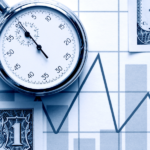The complexity of global trade has always been exacerbated by disparate financial systems worldwide, leading to inefficiencies in cross-border transactions. Various countries and financial institutions have long struggled with fragmentation due to diverse payment systems, hindering seamless global commerce. The introduction of the ISO 20022 messaging standard, slated for adoption by Federal Reserve banks in March 2025, seeks to address these challenges by enhancing data richness and fostering interoperability. This development is poised to streamline global payment processes and facilitate smoother transactions. Additionally, the potential integration of ISO 20022 with emerging technologies like blockchain and AI may further modernize payment systems.
How Does ISO 20022 Enhance Payment Data?
ISO 20022 improves payment data by providing a standardized messaging framework that offers more detailed and structured information. Compared to traditional formats, it minimizes errors and enhances reconciliation processes, making financial transactions more efficient. Major players in the global financial sector, such as SWIFT, support its adoption to unify fragmented systems. Over a million ISO 20022 messages are already being sent daily through the SWIFT network, covering 220 countries and territories.
What Are the Challenges in Achieving Full Adoption?
Achieving full adoption of ISO 20022 requires participation from all market players, including banks, corporates, and financial institutions. Jenny Lee from Bank of America has emphasized that the potential of ISO 20022 cannot be fully realized without synchronized timelines and policies. Proprietary frameworks or outdated technologies may struggle to align with ISO 20022 standards, making it essential for technologies like APIs and machine learning to bridge gaps. These technologies can translate non-ISO data formats into compliant messages, enabling broader participation in the standardized ecosystem.
A look at previous developments reveals that the trajectory towards standardization has been ongoing for years. Financial institutions have previously faced hurdles in transitioning from legacy systems to more unified protocols. While initial hesitations existed due to concerns about costs and implementation complexities, the increasing number of ISO 20022 formatted messages indicates growing global acceptance. The standard is now seen as crucial for enhancing transparency, efficiency, and trust in international transactions.
ISO 20022 is not just about reducing payment friction; it also paves the way for value-added services beyond payment processing. The standard’s rich data capabilities support advanced analytics, fraud detection, and customer personalization. Coupled with AI, it enables payment service providers to deliver insights, optimizing cash flow, managing risk, and strategizing effectively. The integration of ISO 20022 with blockchain technologies can also enhance the identification and processing of digital currencies, addressing a longstanding issue in financial ecosystems.
Digital Token Identifiers (DTIs), another ISO standard, are crucial for distinguishing between different digital currencies, which lack universally recognized identifiers. The use of DTIs, alongside ISO 20022, could significantly enhance cross-border payments by improving interoperability between traditional and digital financial systems. This approach helps banks track and process transactions involving cryptocurrencies more effectively, bridging the gap between fiat and digital currencies.
The adoption of ISO 20022 by Federal Reserve banks and its potential integration with advanced technologies marks a significant step towards harmonizing global payment systems. While challenges remain, particularly in achieving universal participation and overcoming technological hurdles, the benefits are evident. Enhanced data quality, reduced errors, and improved interoperability promise greater efficiency in the financial sector. As digital currencies and innovative technologies become increasingly prominent, ISO 20022’s role in modernizing payment systems is likely to grow, making it essential for institutions to align with this standard.










